

Monex Global Retail Investor Survey Report
December 2018
 Summary
Summary [The forecast DI for world stock markets]
[Japan]
|
June 2018: 22 → Dec. 2018: 4 (-18 points)
|
[U.S.]
|
June 2018: 18 → Dec. 2018: 10 (-8 points)
|
[China (H.K.)]
|
June 2018: -2 → Dec. 2018: 7 (+9 points)
|

[Expectations for stock markets in the coming three months]
[Japan]
|
U.S.: 40.6%
|
Europe/U.K.: 7.6%
|
Asia excl. Japan: 19.5%
|
Japan: 32.3%
|
[U.S.]
|
U.S.: 74.5%
|
Europe/U.K.: 3.0%
|
Asia excl. Japan: 18.6%
|
Japan: 3.9%
|
[China (H.K.)]
|
U.S.: 43.7%
|
Europe/U.K.: 7.5%
|
Asia excl. Japan: 42.1%
|
Japan: 6.7%
|
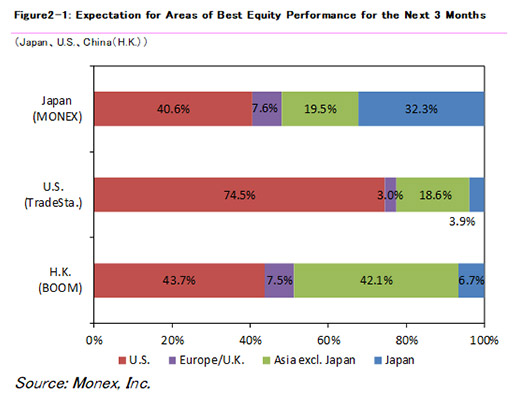
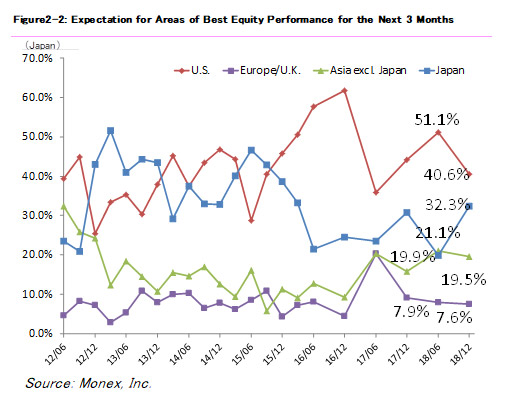
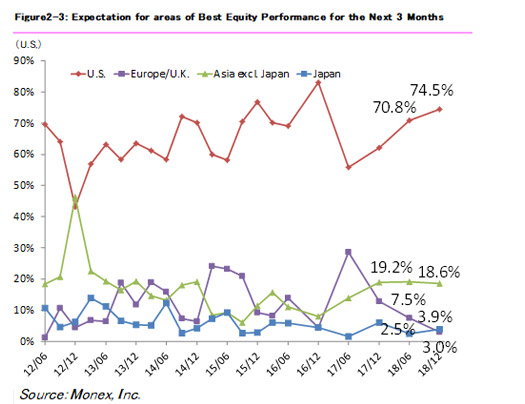
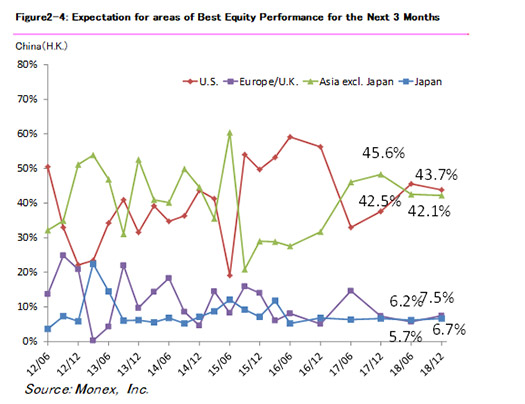
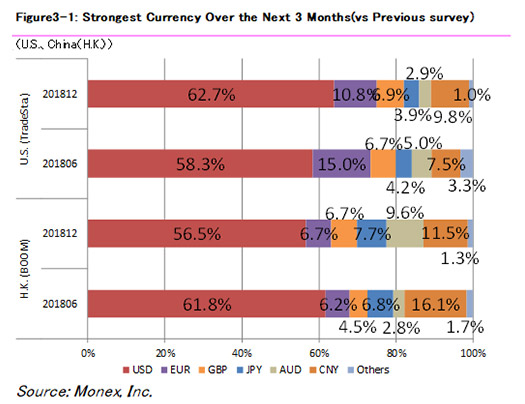
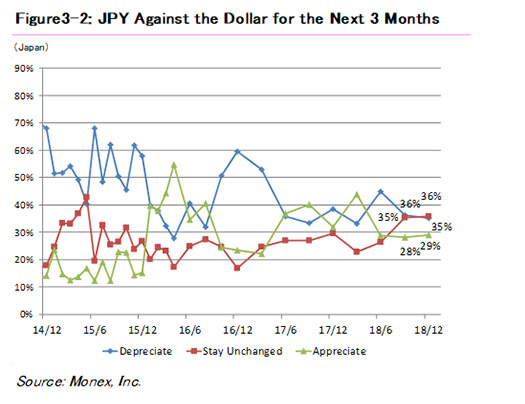
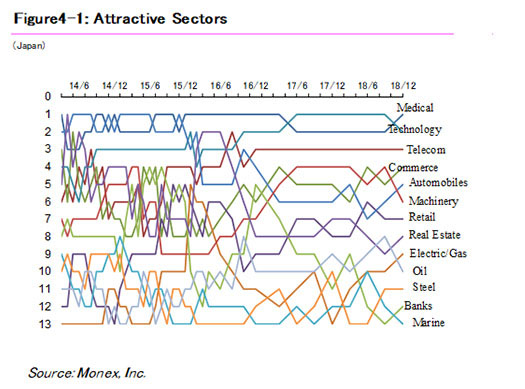
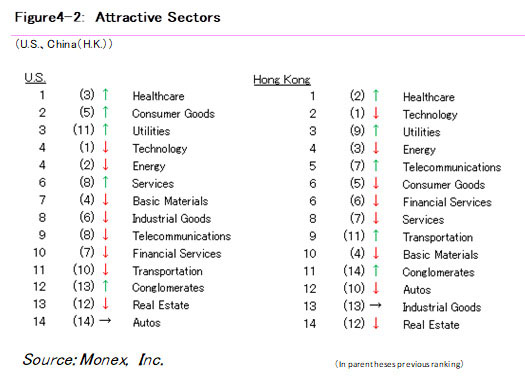
[Expectations for Crude Oil]
[Japan]
|
June 2018:-5 → Dec. 2018:-21 (-16 points)
|
[U.S.]
|
June 2018:52 → Dec. 2018:12 (-40 points)
|
[China (Hong Kong)]
|
June 2018:31 → Dec. 2018:28 (-3 points)
|
[Metals]
[Japan]
|
June 2018:21 → Dec. 2018:16 (-5 points)
|
[U.S.]
|
June 2018:34 → Dec. 2018:12 (-22 points)
|
[China (Hong Kong)]
|
June 2018:24 → Dec. 2018:20 (-4 points)
|
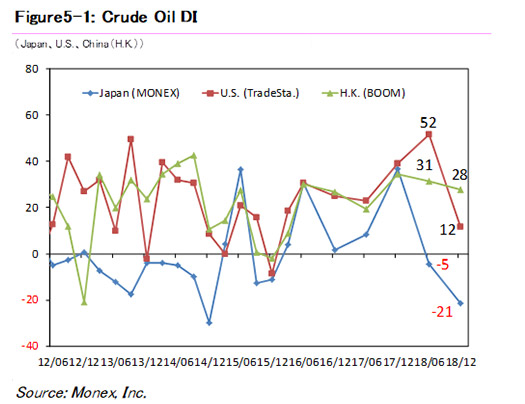
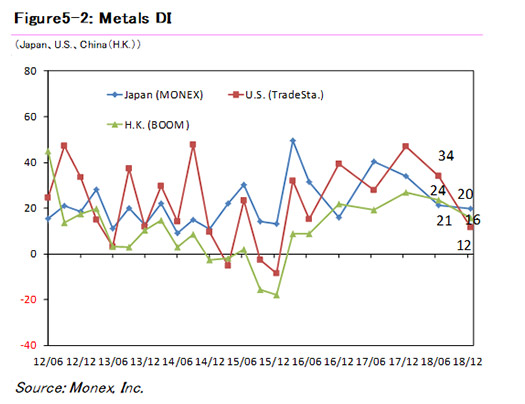


 Results
Results [Japanese Stocks DI]
|
Sep. 2018: 6 → Dec. 2018: 11 (+5 points)
|
[U.S. Stocks DI]
|
Sep. 2018: 38 → Dec. 2018: 20 (-18 points)
|
[China stocks DI]
|
Sep. 2018: -33 → Dec. 2018: -32 (+1 points)
|
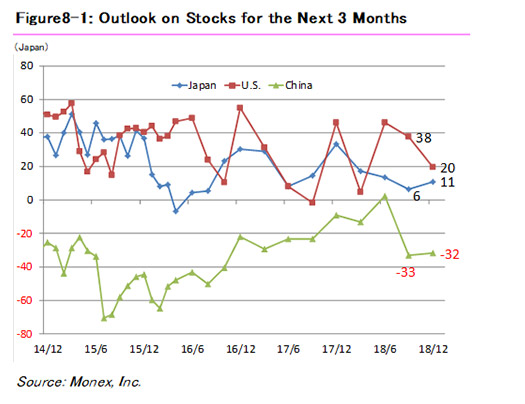
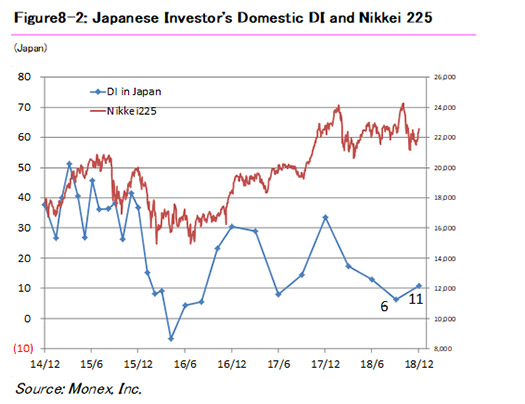
[DI of trading frequency]
|
Sep. 2018: 25 → Dec. 2018: 20 (-5 points)
|
[DI of investment amount]
|
Sep. 2018: 18 → Dec. 2018: 15 (-3 points)
|
[DI of the number of stocks held]
|
Sep. 2018: 7 → Dec. 2018: 7 (0 points)
|
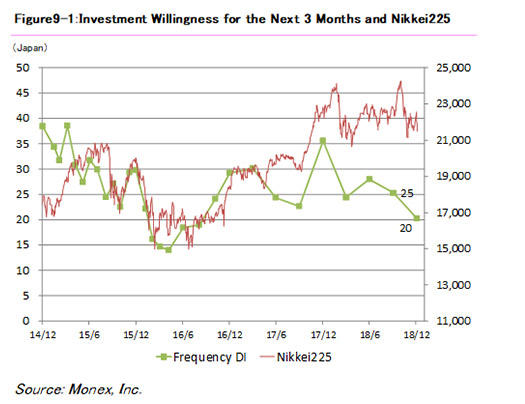
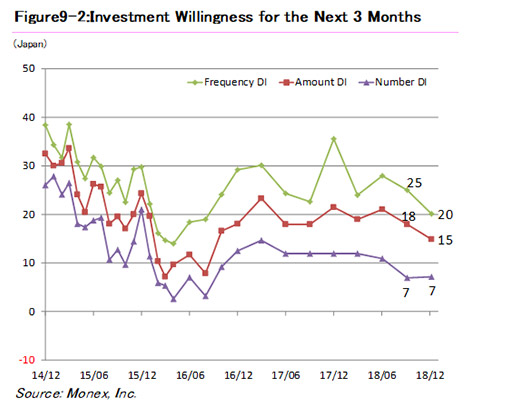

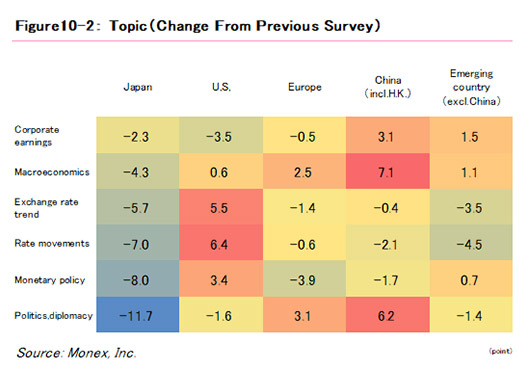


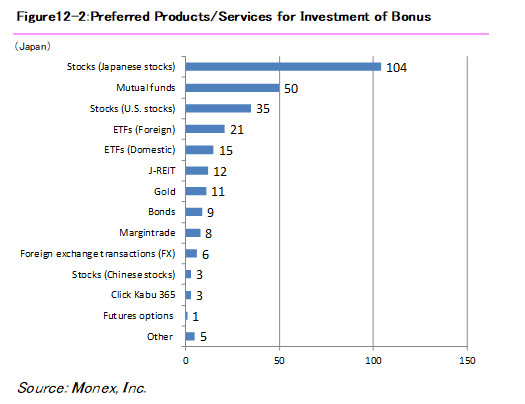
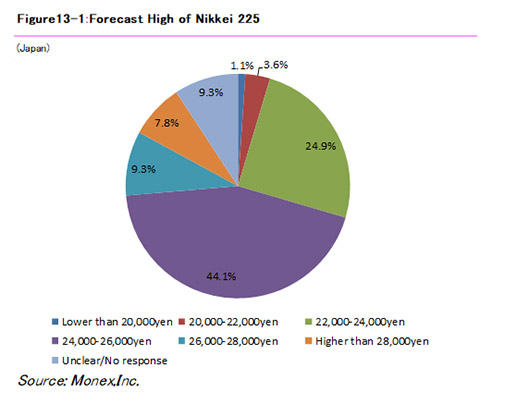
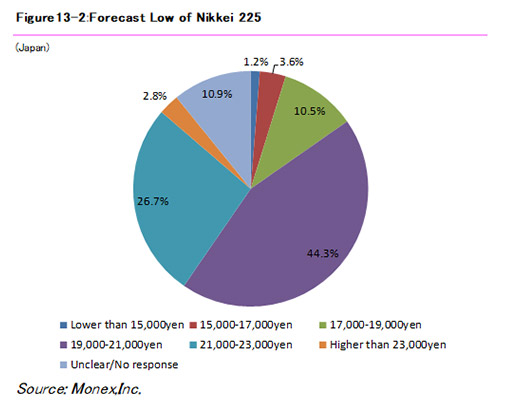
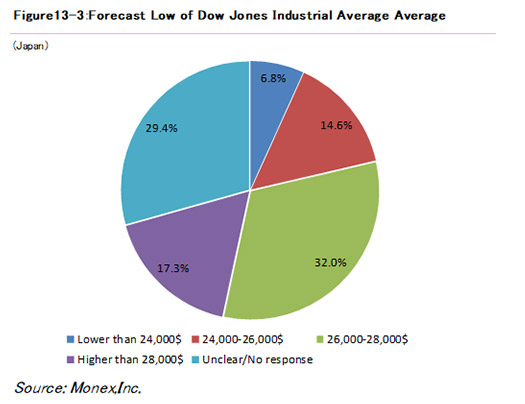
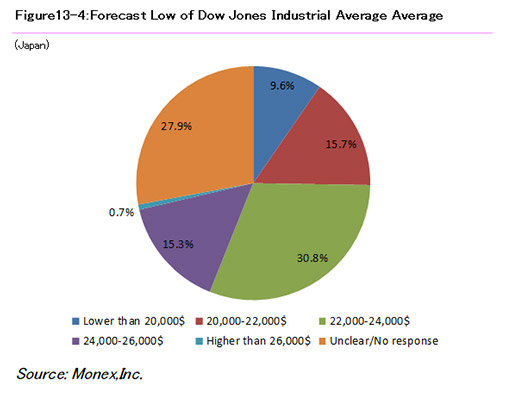
Japan
Method:
|
Online survey
|
Respondents:
|
Customers of Monex, Inc.
|
# of Responses:
|
564
|
Period:
|
Nov.26 to Dec.7, 2018.
|

United States
Method:
|
Online survey
|
Respondents:
|
Customers of TradeStation Securities, Inc.
|
# of Responses:
|
102
|
Period:
|
Nov.26 to Dec.7, 2018.
|
Hong Kong
Method:
|
Online survey
|
Respondents:
|
Customers of Monex Boom Securities (H.K.) Limited
|
# of Responses:
|
375
|
Period:
|
Nov.26 to Dec.7, 2018.
|
Disclaimer
The Monex Global Retail Investor Survey measures customer sentiment based upon answers to specific questions received from a random sampling of customers of Monex, Inc., TradeStation Securities, Inc. and Monex Boom Securities (H.K.) Limited. Details of the methodology used to conduct the survey are available upon request. Accuracy and completeness of the data derived from the survey are not guaranteed.